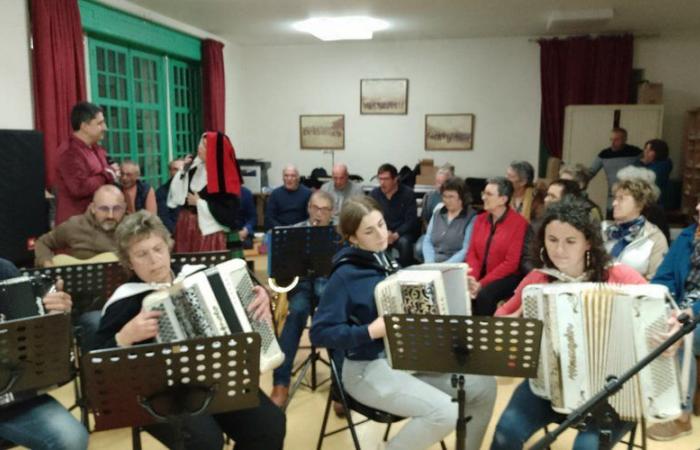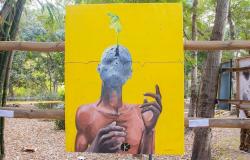
To celebrate the 160 years of existence of orpheonic singing in Lourdes, the Chanteurs Montagnards have put together a unique show, like a kind of opera, which will be performed on Saturday, November 30 at the Robert Hossein space.
The formation of the first orpheon of Lourdes dates back to 1864, and today, in 2024, these leaders of local culture offer an even deeper historical introspection by evoking the life of Lavedan in the years 1664, 200 years ago. A light and fun way to get to know your little country better…
“Béline and Martin or the Revolt of the Montagnols” is an entirely sung piece, a type of opera, even if we are far from the splendor and lyricism that this genre evokes in the common mind. Here there is no elitism or grand orchestral flights. The artists, excellent, are amateurs, the violins are replaced by accordions, and the characters are neither gods nor flamboyant princes. The two title characters are a simple “dragon”, a soldier of the King, and a young shepherdess from Lavedan.
So what are the significant events of this ancient period that caught the attention of the author, Laurent Chenaux, director of the Montagnard Singers of Lourdes? The answer lies in a few key words: the custom of Barège, the companies of dragoons, Audijos and the gabelle, the excommunication monitories, the battle of Maupas, the East India Company.
The Custom of Barège, kézako?
The first draft of Fors de Bigorre which has reached us dates from 1097! These are the founding texts of a type of constitution under which the people of Lavedan lived for centuries, until 1768, a little before the Revolution. This constitution, designated as the Custom of Barèges, contains provisions which influenced local mentalities well into the 20th century, and some members of the current Montagnard Singers have still felt their effects.
Two provisions of this custom: one, in matters of inheritance, the eldest receives almost all of the property, a guarantee of the preservation of properties in a rigorous mountain region, the eldest yes, but “male or female » ! Which reveals the figure of the heiress, true mistress of the household, to whom the husband, necessarily a younger son, was entirely subject. Why necessarily a cadet? Because, secondly, marriage between elders was prohibited, it was impossible to accumulate property!
And moreover, to demonstrate her rank as heiress, an elder had to, on ball days, wear a red dress with green trims, so as to avoid any confusion. In the history of the Montagnard Singers show, Béline is an heiress, and as such, bears the responsibility for the perpetuation of her household. But here she is who falls in love with a dragon, a soldier of the King, Martin, originally from Lorraine and confined to the castle of Lourdes. We imagine that all this will not go without saying! Especially since a cadet from the village, Ménicou, had already made his mark, with the approval of the neighborhood…
A whole story, marked by the events which shook up rural society in Lavedan, to be discovered on Saturday November 30 (8:30 p.m.) at the Robert Hossein space in Lourdes (€20 full price / €10 under 16s). Online ticketing available here.





